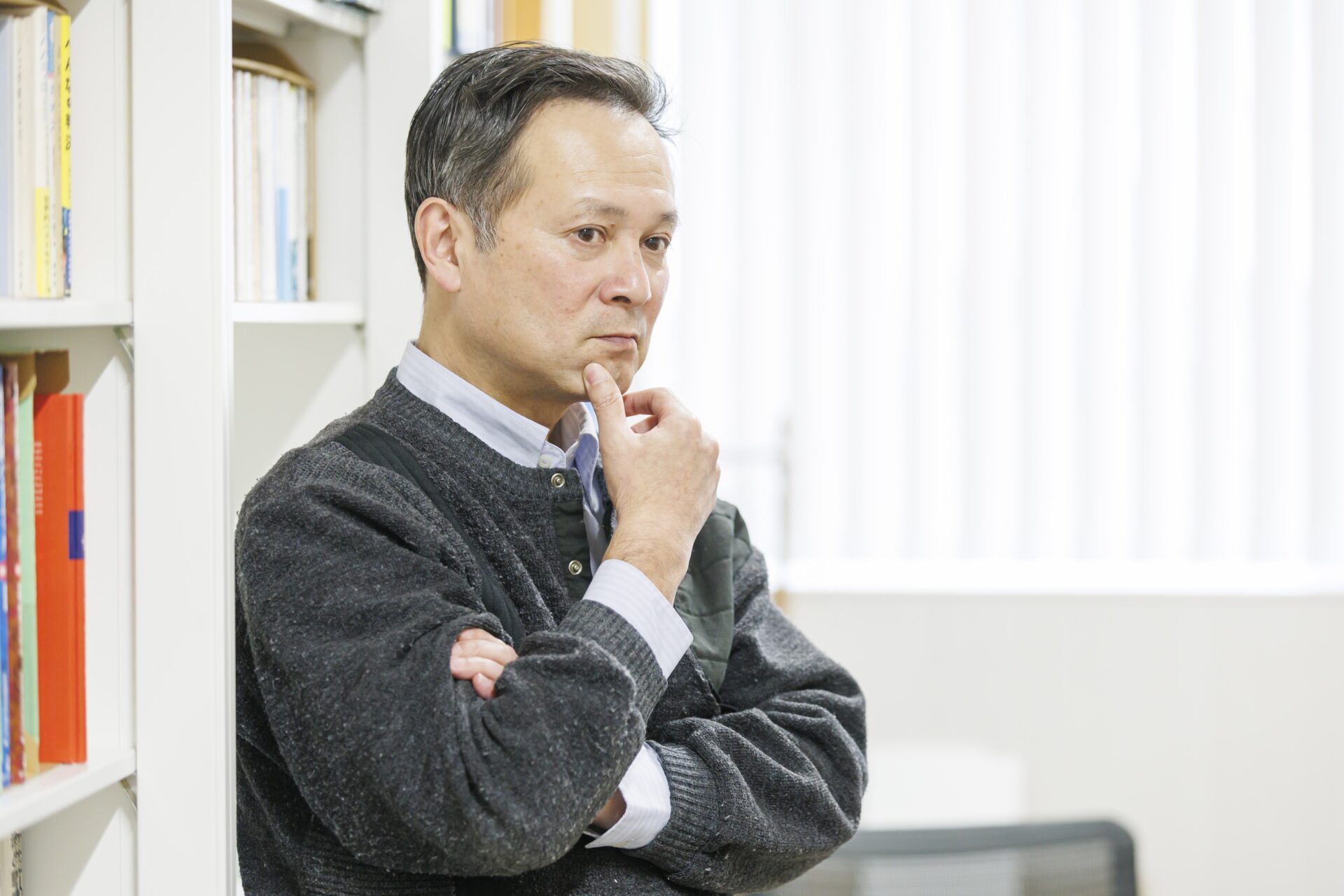Shikohin is something that we consume that may not have any nutritional value or benefit in sustaining our bodies.
Even though it is not a necessity to sustain life, shikohin is enjoyed in various ways around the world.
Perhaps shikohin is rather a necessary part of what makes us human.
When contemplating shikohin, we must address the question of what is necessary for human life, and by extension, what defines humans as a living being.
For our new series, “To Live, To Relish,” we will explore what shikohin and its experiences mean to us in our modern world, and interview leading researchers, anthropologists, historians, and more.
For this article we visited Professor Hiroshi Kawakami, an advocate for the “benefit of inconvenience,” at his laboratory at the Kyoto University of Advanced Science.
In Part 1 of this article titled “When Waste is Not Futile, and Why Benefits Embedded in Inconvenience Make Us Human,” Kawakami explained that when you look at things with an understanding of the benefit from inconvenience, there is futile waste and meaningful waste. He pointed out that this perspective is also connected to the significance of shikohin in our lives.
In Part 2 of this article, Kawakami will share his shikohin experiences from his youth and the potential that the benefit of inconvenience and shikohin have in enriching our daily lives.
Convenience does not always lead to enrichment
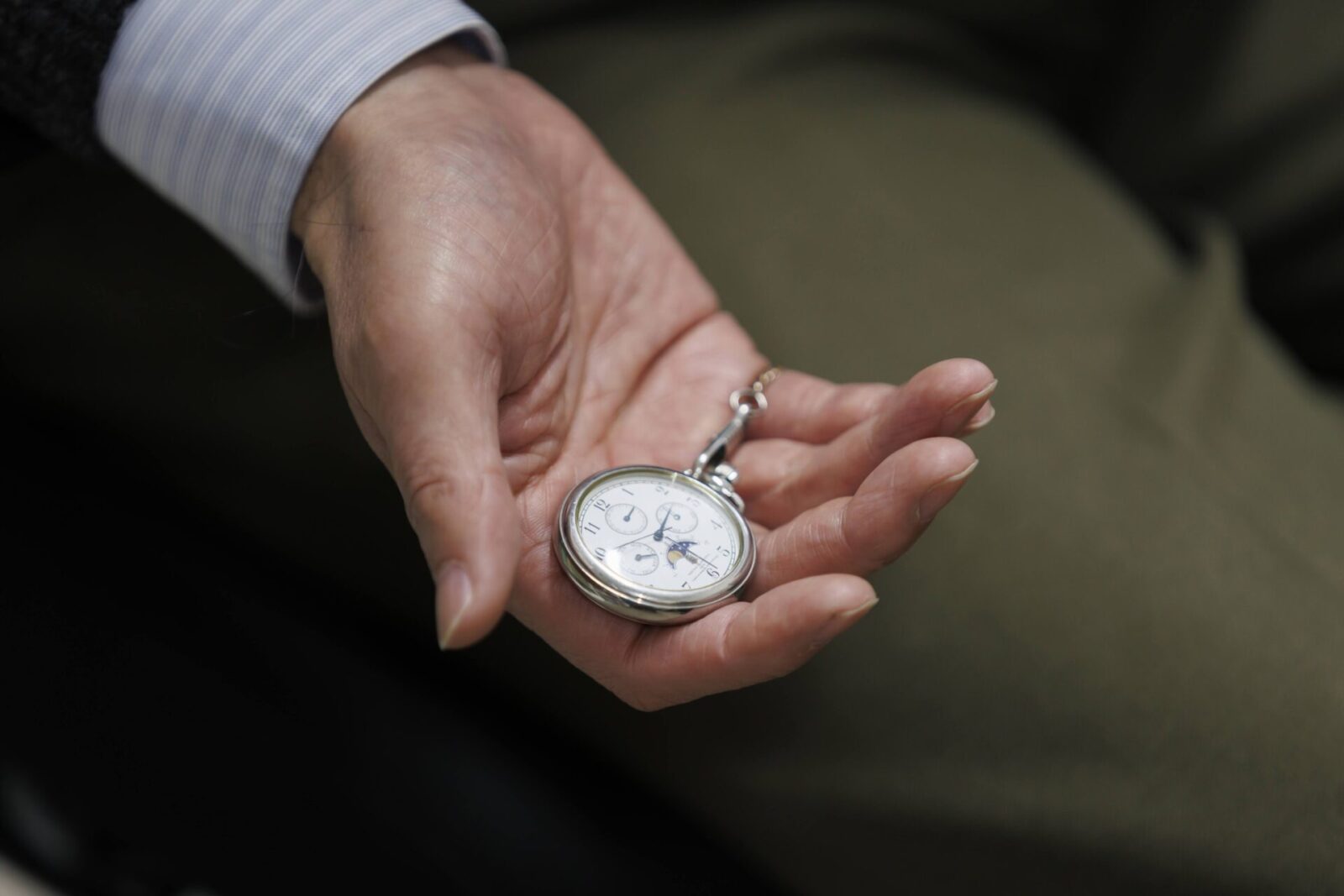
── In Part 1 of this interview, we talked about how there is futile waste and meaningful waste in this world. What are your thoughts of today’s world, where convenience and efficiency is sought above all else?
Japan was going through rapid economic growth back when I was a child. I remember seeing the words “a convenient and rich society” in advertisements multiple times a day.
My question is, in the 21st century, will we continue to pursue such a vision?
── Even today the terms convenience and prosperity are often connected as being equivalent.
I don’t believe that convenience is always equal to enrichment.
I talked about the example of the conveyor belt assembly line in the first half of this interview, but as a system becomes more efficient and sophisticated, the factors in which people are involved or committed to become fewer.
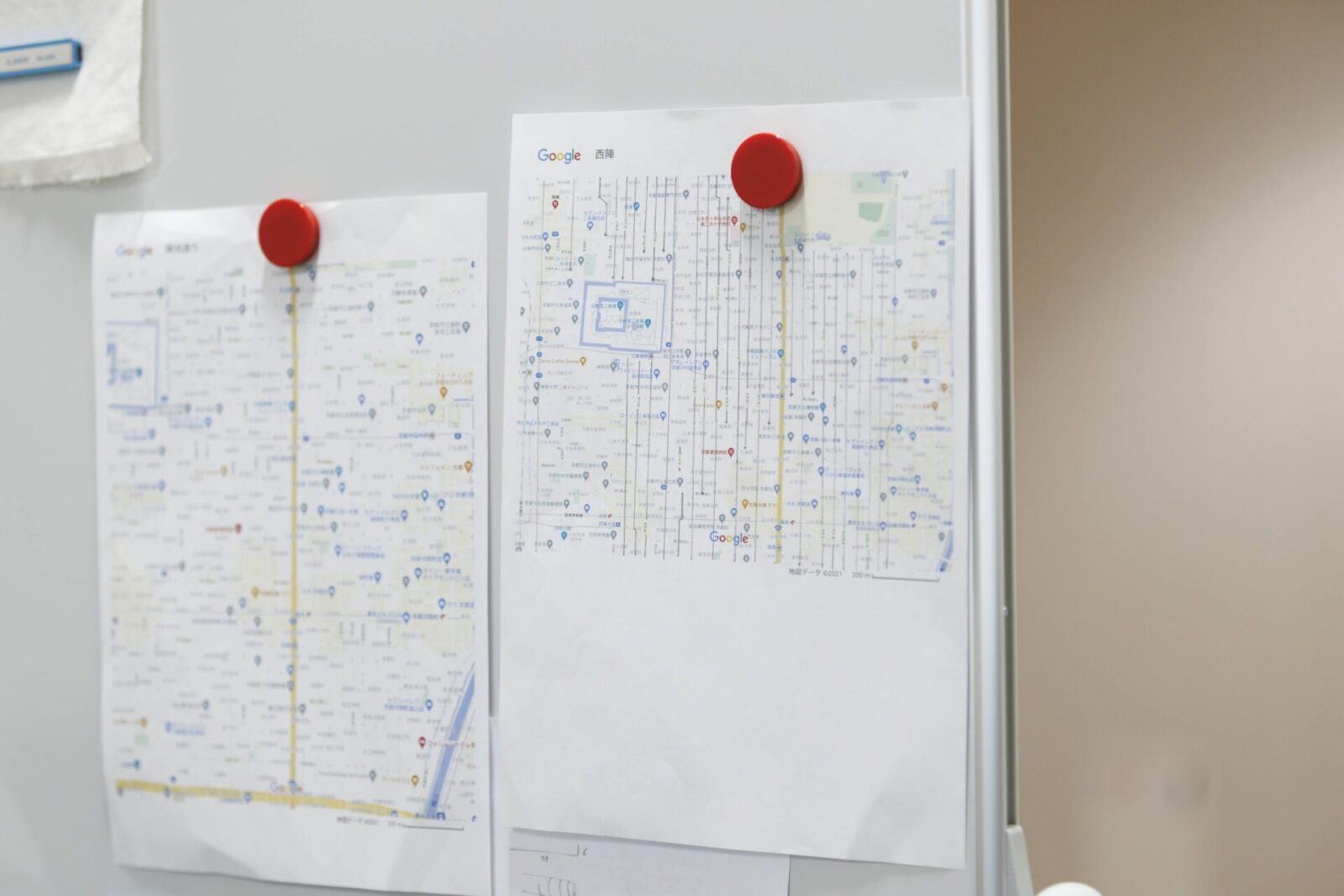
── Do you have some resistance to systems that are not mainly controlled by humans, even if they are convenient?
In mechanical systems engineering and especially in the study of human-machine systems, there is a term called HCD (Human Centered Design).
It comes from an idea proposed by Donald A. Norman in the 1980s on “User-Centered Design.”
In short, it is a way of approaching design in which the primary consideration for making or designing something is placed on the ease of human use.
However, in 2005 Norman himself published a paper in which he stated that human-centered design is harmful.
── So his thoughts on the matter shifted completely?
I was surprised at first, but upon reading the paper carefully, I found his point to be a little different.
In the paper, Norman states as follows:
In the current age of human centered design, it is as if humans are the center of the universe and everything is designed to revolve around them.
There are too many people who think that human centered design means that humans don’t have to do anything or that the tools will do it all so humans don’t have to move themselves.
Norman’s concern was that humans were losing opportunities to move, learn and master things for themselves.
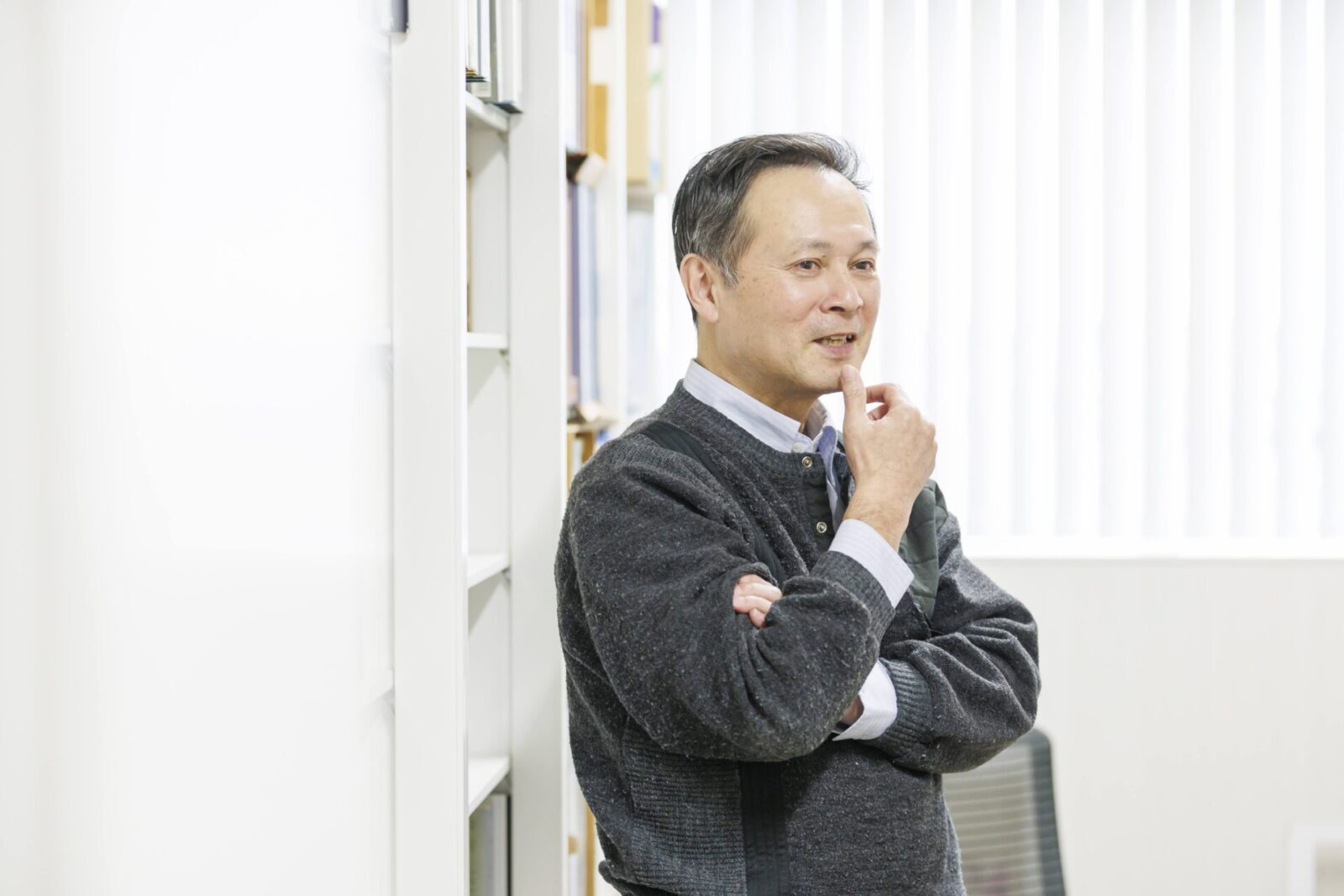
── It sounds like Norman’s way of thinking is similar to that of the benefit of inconvenience.
There is meaning in human commitment. Norman is saying that incorporating those factors is the true point of human-centered design.
The reason why involving human movement and action is so important is because that is what enriches our lives and makes us happy.
What is lost in convenience
── Perhaps no matter how convenient things become, being told to do nothing in life will make it quite boring indeed.
People tend to talk about convenience in conjunction with freedom, as if convenience will make people more free and therefore more happy.
However, what does freedom really mean in this case? Is having to do nothing what freedom is? Or is freedom being able to do anything?
── That is a difficult question…
When looking at things from the perspective of the benefit of inconvenience, the convenience of being able to do something that could not be done before is very good.
Benefit of inconvenience does not negate all things that are convenient. Of course, it is also not just simple nostalgia that claims that things were better in the old days.
Benefit of inconvenience is the belief that if things that we have learned to do become efficient and convenient to the point in which we don’t have to do it any more, that is not a good thing.
The reason being that there is no room for human action there.
When one thinks about the relationship between tools and humans, I feel that our current age has become infested with adaptive tools.
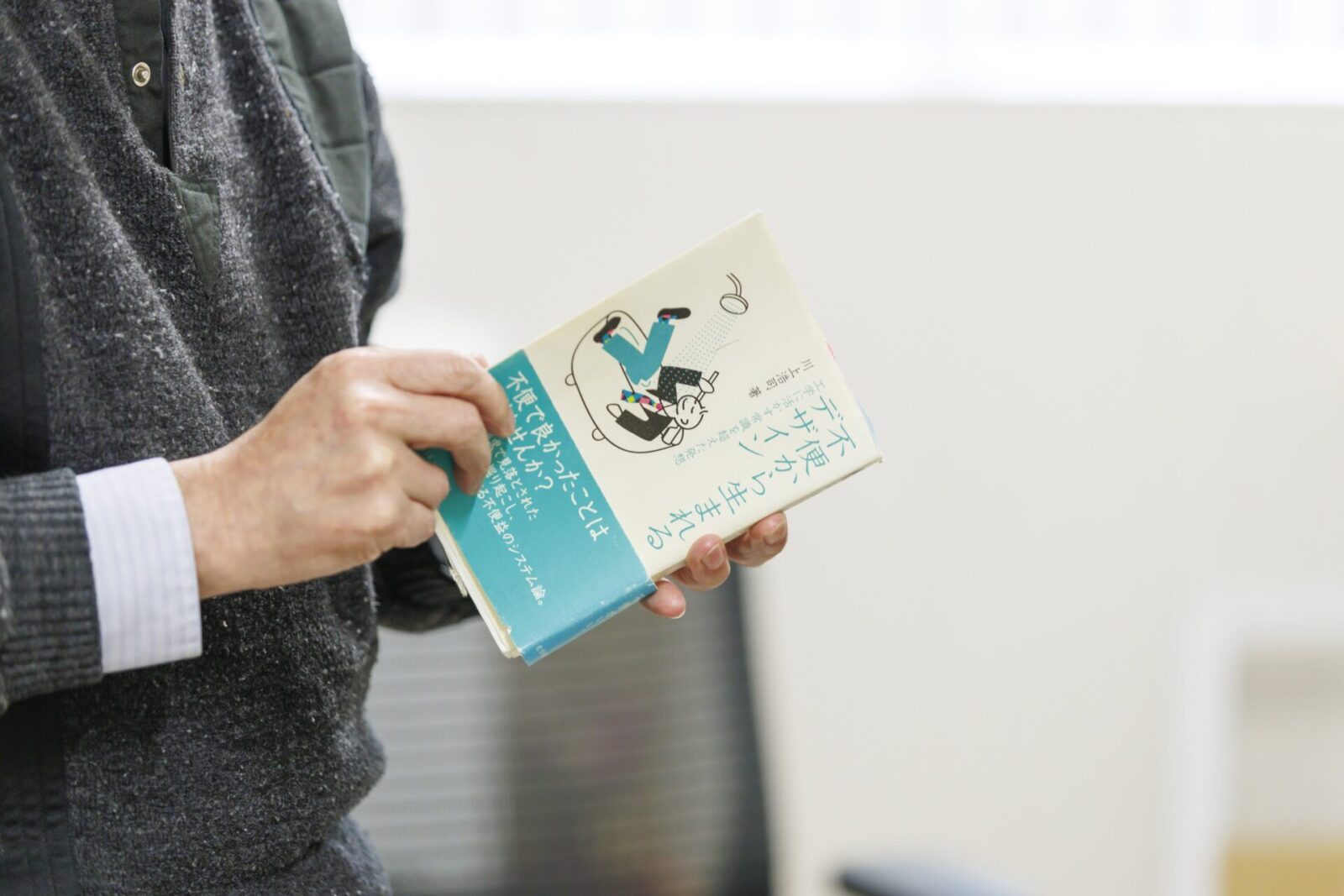
── What do you mean by adaptive tools?
Some examples are smartphones and computers that we use everyday. Self-driving cars and automatic translation tools are also adaptive tools.
These tools allow humans to do nothing or not to change in any way because the machine does it all for you.
I feel resistant in accepting such “conveniences.”
Take automatic translation tools for example. When you use that tool, you have no choice but to trust that the machine has translated correctly.
At the moment, automatic translation tools still struggle to convey minor nuances, but eventually they will probably be able to translate perfectly.
In the future, I may be able to tell jokes in Japanese that the translation tool will translate and foreigners may laugh at my joke. That sounds very convenient, but if you really think about it, is it really the joke that I told that they are laughing at?
I tell a joke and the audience laughs. This must mean that the translation tool translated my joke perfectly. However, there is no way for me to check if the meaning or nuance that I wanted to convey was really expressed.
This makes me feel uneasy because I have no choice but to believe that my thoughts were expressed properly by the machine.
As translation tools become closer to perfection, perhaps I will stop feeling this way and eventually I may simply be happy that I am able to make the audience laugh.
An important part of the benefit of inconvenience is also learning to pick up on these feelings of uneasiness.
── Does the benefit of inconvenience teach us how to sense some fear when things become overly convenient?
I hope it will teach people to stop a moment and think before accepting that a convenience is good, or that all conveniences should be accepted.
Otherwise, I fear that people will continue to become deprived of situations and opportunities to learn and demonstrate their abilities.
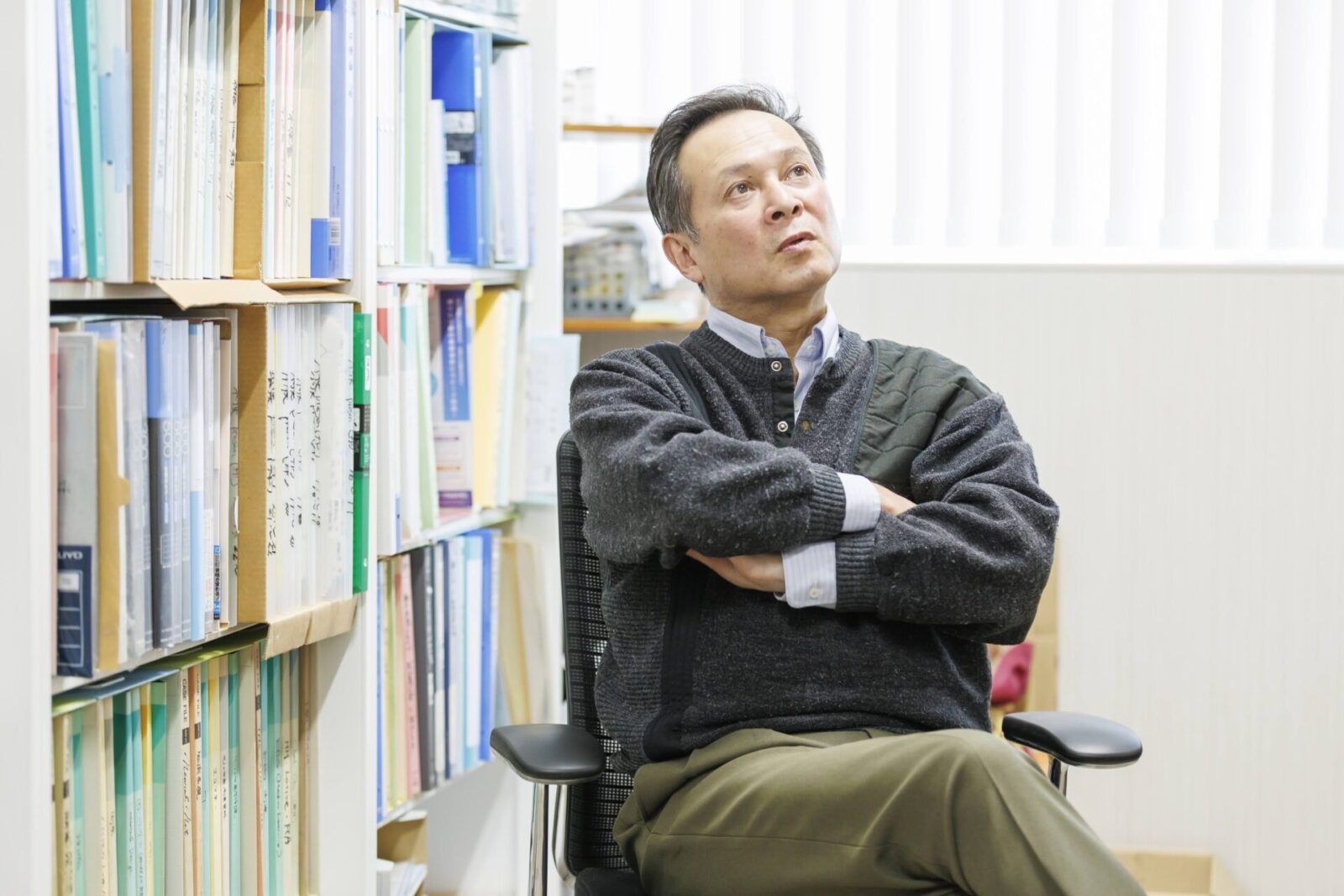
Not futile waste, but enjoyable hassle
── You talked about how enjoying hassle is also a characteristic of the benefit of inconvenience.
Enjoying hassle can also be explained as enjoying the process. It is something that is also true to the appeal of shikohin.
── By the way, what shikohin do you personally enjoy?
Alcohol. I drink it everyday.
If I have a business trip, I try to get to my destination the day before so I can look for a nice restaurant near the hotel and enjoy the local food and drinks.
I do not own a smartphone, so I do not check online for information on restaurants. I look for it using my own sense of smell.
When I was a poor university student, I made a rule of drinking just one bottle of Kirin Lager beer each week. I remember it tasting extremely delicious.
There was an excitement I felt through waiting a whole week for that one bottle of beer, going out to buy it, chilling it in the fridge, removing the bottle lid and pouring it into a glass….
Looking back, I believe that the bottle of beer I drank as a poor student is the definition of shikohin itself.
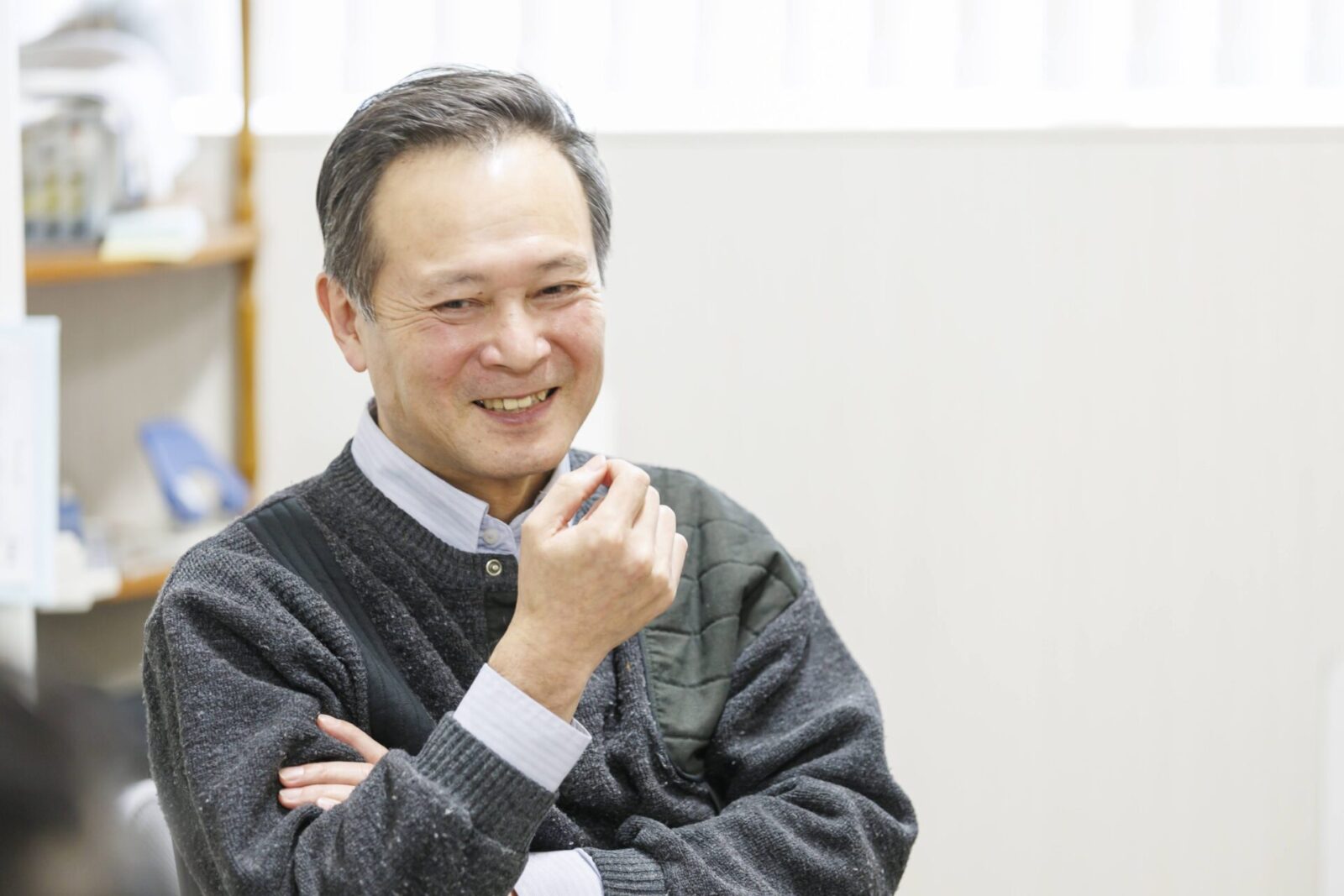
The experience was not only about drinking the beer, but savoring the whole experience.
There were times when I got ready to drink it, but could not find the bottle opener so I frantically searched around for it.
The inconveniences, restrictions, and the time that it took until I finally brought the beer to my mouth were all a part of what made it taste so good. The point that I chose bottled beer rather than canned beer also played a role in making it a shikohin experience.
── I can relate to the experience of added hassle making something taste better.
The same is true for tea. If you simply want to quench your thirst, tea in a plastic bottle would suffice.
However, drinking tea from a plastic bottle and drinking tea brewed in a teapot will taste different and the experience will not be as fulfilling. Because the tea is not simply consumed to quench one’s thirst, there is a positive meaning that is associated with tea as a shikohin.
The same is true for coffee. Preparing coffee requires one to grind the coffee beans first. In fact, the process of enjoying coffee may begin from the moment you are selecting the coffee beans.
Before you finally drink the coffee, there is a lot you must do. You must attain the coffee beans and the necessary tools, and you must go through various steps.
At first glance it may all seem like a big hassle, but when you try it you find that it is fun. Although it takes extra effort, it is necessary for shikohin to have some aspect of it that is not easy to attain, and that is part of its appeal.
Do not think of waste as being futile, but enjoy the hassle.
I feel that this is what shikohin and the benefit of inconvenience share in meaning.
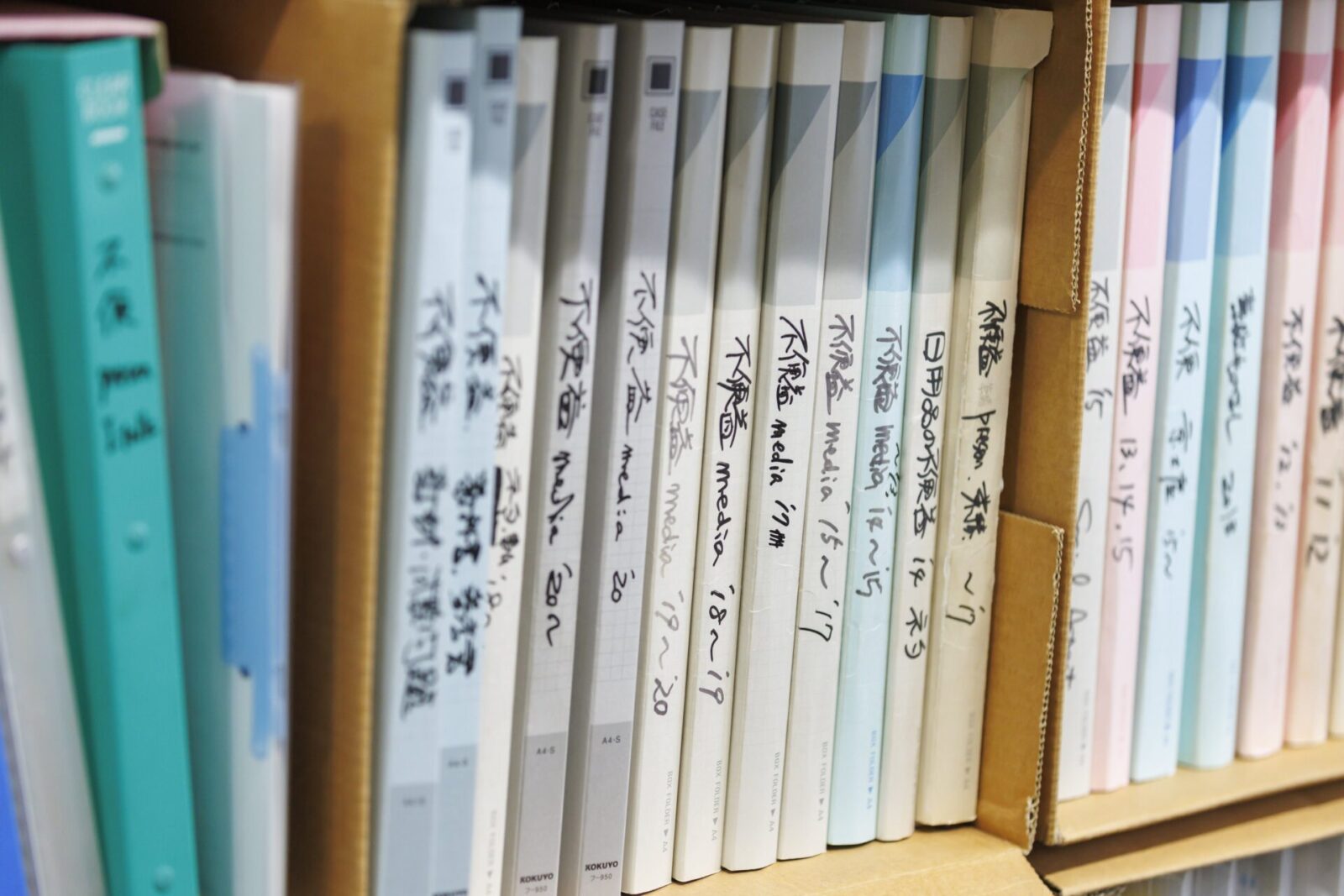
Emphasis on efficiency encroaching on our leisure hours and shikohin experiences
── Lately, terms like “cost performance (cost efficient)” or “time performance (time efficient)” that signify the pursuit of efficiency have become increasingly popular. From the perspective of the benefit of inconvenience, what do you think of such trends?
I wonder what the people of this generation who talk about “cost performance” or “time performance” think about the benefit for inconvenience. This is only an assumption, but it seems to me that they accept both the movement towards prioritizing efficiency and the movement of valuing the benefit of inconvenience at the same time.
The young digital native generation has been surrounded by convenience from the moment they were born. We live in an age where we can watch movies anytime, anywhere on our smartphones and some people choose to watch it at 1.5-times speed.
In that sense, I believe it can be said that free time and shikohin are being infringed by efficiency.
The general belief seems to be that time performance and cost performance are good and right.
It has become the norm to enjoy something in minimal time. TikTok is a perfect example of how humans are becoming bound by a sense of time that moves much more quickly.
On the other hand, that is not the only movement happening today.
I feel that there are a growing number of people who truly enjoy things that provide or give them the sense of the benefit of inconvenience.
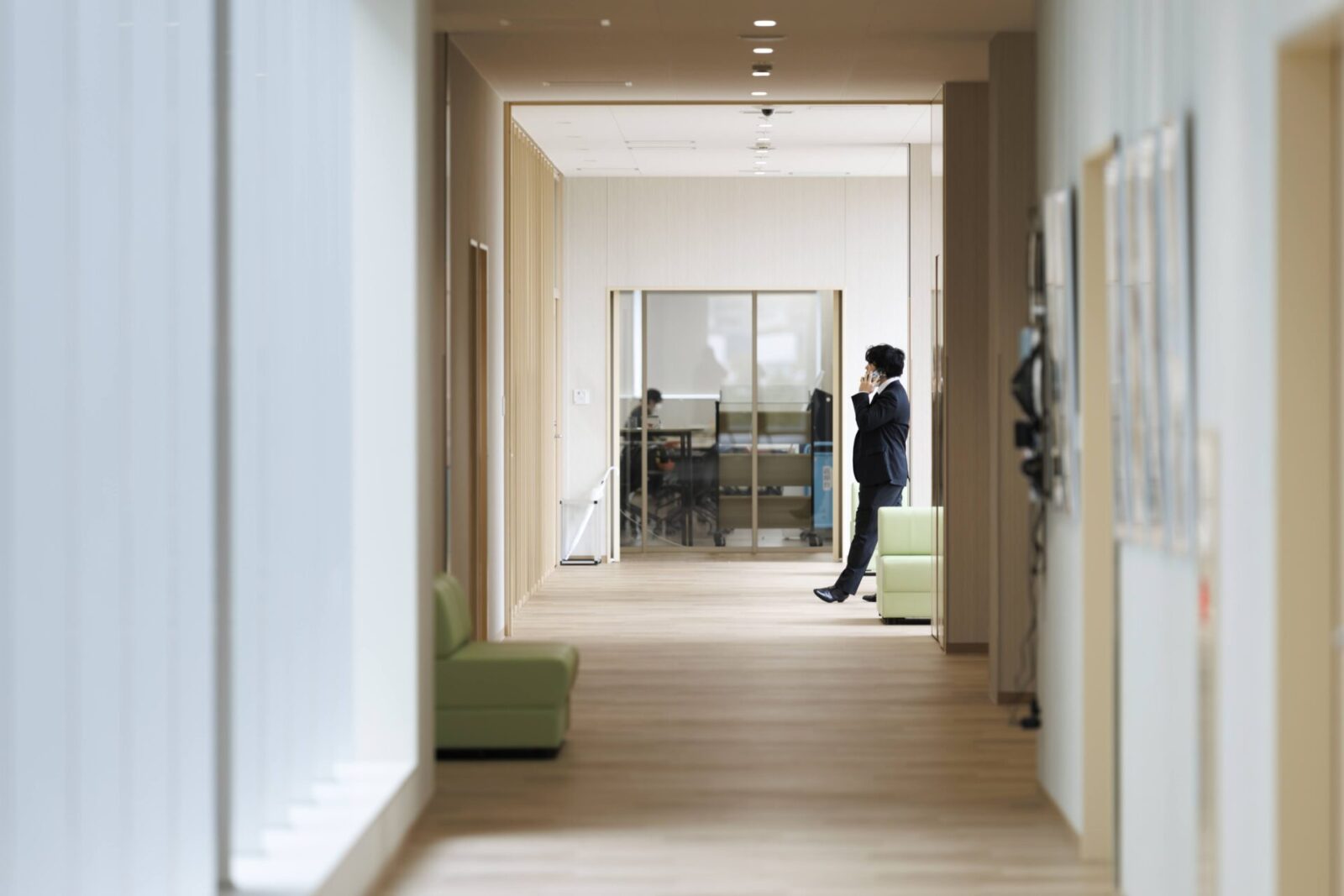
── You mean that the younger generation is also enjoying the benefit of inconvenience?
For example, vinyl records recently became very popular among younger people.
These young people are choosing to spend money, time and hassle to listen to music through vinyl records that they could easily just listen to on iTunes.
LP records and cassette tapes were already disappearing by the time this generation of people was born. This means that they are not attracted to it because of nostalgia, but rather because they find value in the inconvenience that it provides.
── In fact, in order to prepare myself for today’s interview I chose to print out the transit timetable and map from Tokyo to Kyoto, rather than rely on my smartphone to get here.
How interesting! How did you find that to be like?
── I feel that I remember the scenery that I saw along the way much more clearly. I also feel like I can describe how my trip went in much greater detail.
When you walk and are mindful of not using your smartphone, you memorize the transit system better.
In fact, the benefit of inconvenience and travel suit each other very well.
One time, I contributed to a book that introduced souvenirs in Kyoto’s older and well established shops. We wrote the book so that people would walk to the main shops in the city, rather than simply buy the souvenirs at Kyoto Station.
Ajari-mochi (rice cake) is one example of a delicious snack that was only known to regular visitors, but now it has become very popular and you can easily buy it at Kyoto Station. However, there are still special experiences to be had by going to the main shop or direct outlet shops in the city.
Although it takes time and effort, this travel book was designed to motivate people to travel to various locations to buy a specific souvenir. When you buy a souvenir in this way, I think it makes the receiver happier as well.
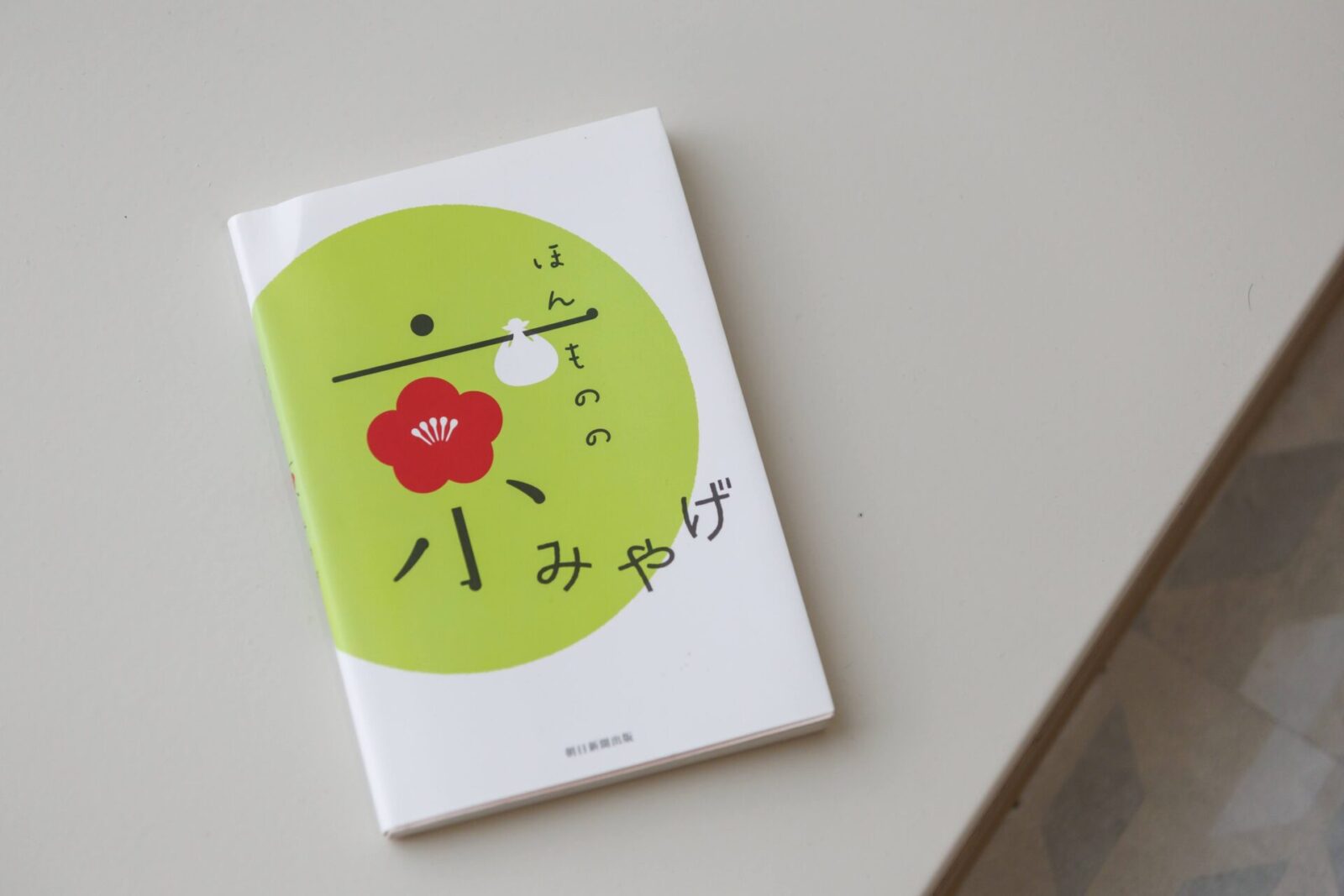
── Spending time and effort also creates more memories that are associated with the trip.
That’s right. There may be people who accidentally get on the wrong bus when trying to get to the shop. Things may not go as planned, but they may discover a nice coffee shop to take a break in on their way.
As we lead our busy lives, we tend to think about how we can get to our destination as quickly as possible. However, one of the joys of traveling is enjoying the time and process of getting to the destination.
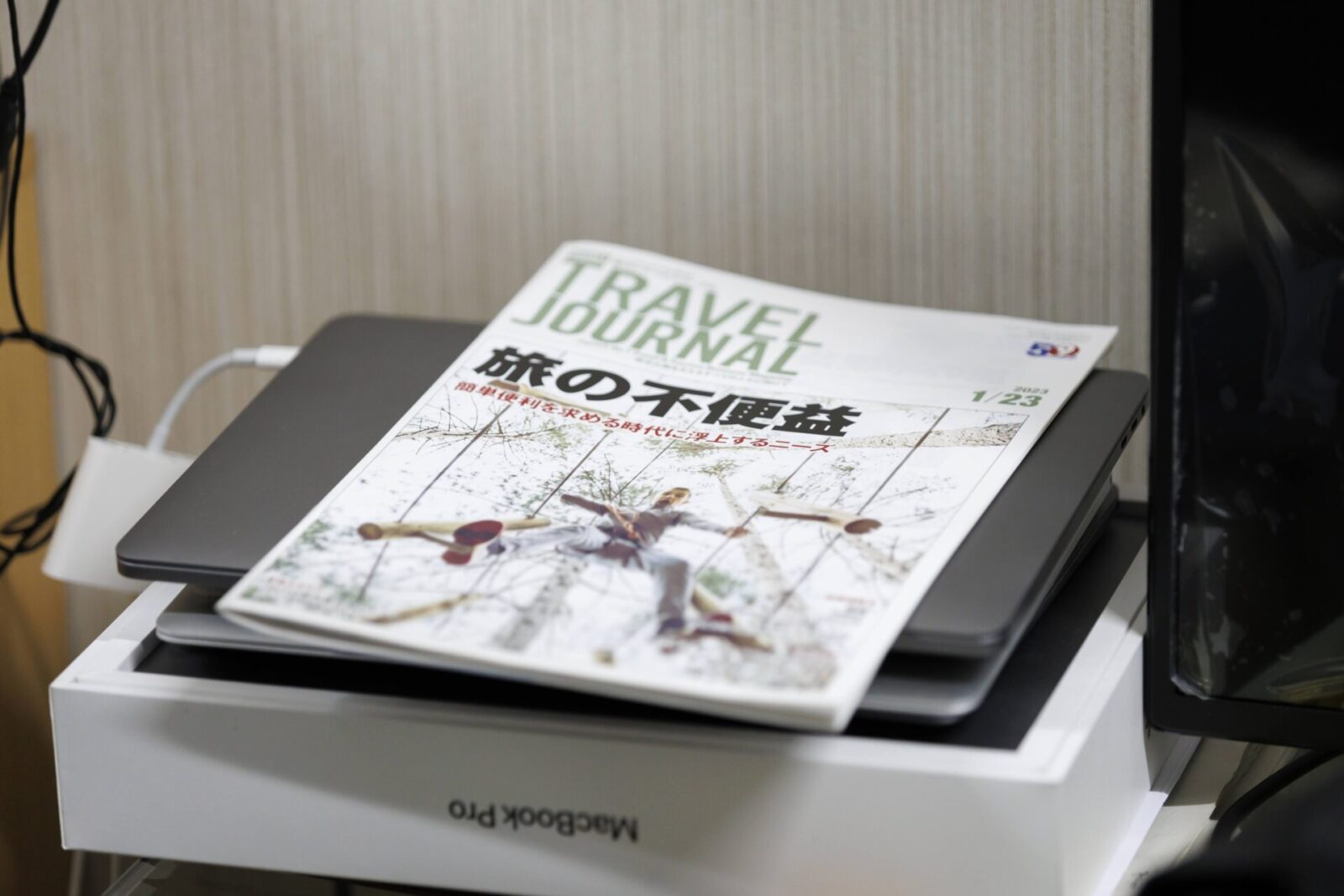
My hope is that people will have room in their hearts and minds to not think of waste as something futile.
The idea of the benefit of inconvenience is by no means omnipotent. It is merely one way to broaden one’s way of thinking and perspective.
If you think that everything will be better if it was more inconvenient, that is the same trap you are setting up for yourself as thinking that everything is better if it was convenient.
However, in our age where convenience has become excessive, I believe that learning to think about things through the benefit of inconvenience may help lessen the load of our busy lives.
Translation: Sophia Swanson
Photo: Yuuki Kimura
Reporter for Business Insider Japan. Born in Shinjuku-ku, Tokyo. Taught world history as a high school teacher, worked for Huffngton Post Japan and BuzzFeed Japan before assuming current position. Interests incude economics, history, and culture. Covers a wide range of topics from VTuber to Rakugo and is interested in food culture from around the world.
Editor / Writer. A freelance editor. Born in Yokohama and based in Kyoto. Associate editor of the free magazine “Hankei 500m” and “Occhan -Obachan”. Interests include food, media and career education programs such as “Internships for Adults”. Hobby is paper cutting.
Editor and creator of the future through words. Former associate editor of Huffington Post Japan. Became independent after working for a publishing company and overseas news media. Assists in communications for corporates and various projects. Born in Gifu, loves cats.
